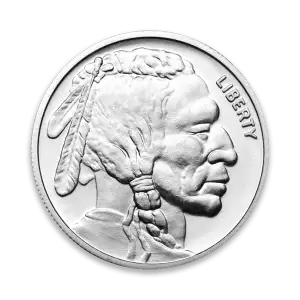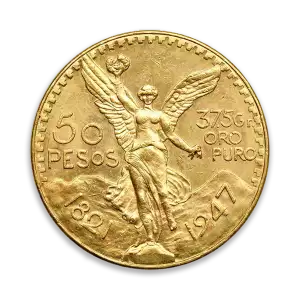Game Theory and the Future of the U.S. Dollar: A Choice-Driven Outcome
Introduction: The Role of Game Theory in Economic and Monetary Policy
Game theory provides a structured way to analyze decision-making among competing players, where the outcome is determined not by a single choice but by the interaction of multiple choices. When applied to the U.S. economy, monetary policy, and geopolitical strategy, game theory reveals the potential paths that lead to the survival or collapse of the U.S. dollar as the global reserve currency. The future of the dollar does not solely depend on economic fundamentals but also on the decisions made by policymakers, global competitors, and market participants.
The U.S. government, Federal Reserve, and international financial players are engaged in a strategic game where each decision—whether related to debt expansion, war, fiscal responsibility, or monetary policy—has consequences. This analysis explores the key decisions the U.S. faces and the potential outcomes based on historical precedent and game theory models.
1. The Fiscal Responsibility Dilemma: Short-Term vs. Long-Term Thinking
Choice 1: Fiscal Responsibility (Pain Now, Stability Later)
Implement spending cuts and reduce government debt.
Increase taxes or restructure entitlement programs to balance the budget.
Stop excessive money printing and allow economic corrections.
Outcome: Short-term economic recession but long-term stability. Inflation stabilizes, and confidence in the U.S. dollar is restored, prolonging its role as the global reserve currency.
Choice 2: Unlimited Debt & Money Printing (Easier Now, Disaster Later)
Continue deficit spending and monetary expansion to maintain short-term economic stability.
Rely on foreign buyers of U.S. Treasuries to fund debt.
Avoid politically unpopular fiscal discipline.
Outcome: The economy avoids immediate recession, but the long-term effect is the erosion of confidence in the dollar, leading to inflation, higher debt servicing costs, and eventual currency devaluation.
Game Theory Prediction: Politicians favor short-term survival over long-term sustainability because economic pain leads to voter dissatisfaction. This accelerates the dollar's decline.
2. The War vs. Peace Decision: Military Power and Global Influence
Choice 1: Diplomacy & De-escalation (Reduced Influence, Longer Stability)
Reduce military spending and prioritize economic alliances.
Focus on trade agreements rather than economic coercion.
Avoid direct conflicts with China, Russia, or Middle Eastern nations.
Outcome: The U.S. maintains influence through economic cooperation, and de-dollarization happens slowly over 20+ years.
Choice 2: Military Expansion & Conflict (Short-Term Power, Long-Term Risk)
Maintain U.S. global dominance through military intervention.
Use sanctions and force to keep the petrodollar system intact.
Engage in proxy wars to prevent rivals from bypassing the dollar system.
Outcome: In the short term, military dominance sustains the dollar’s role, but war accelerates de-dollarization as adversaries create alternative financial systems.
Game Theory Prediction: The U.S. is more likely to choose conflict, as military superiority is its strongest asset. However, this decision speeds up the global shift away from the dollar, increasing the likelihood of economic decline.
3. Political Leadership and Systemic Reform vs. Entrenchment
Choice 1: Reformist Leadership (Fixing the System)
Acknowledge systemic economic problems and enact financial discipline.
Reduce reliance on Wall Street speculation and corporate monopolization.
Focus on self-sufficiency in manufacturing, energy, and innovation.
Outcome: A difficult but necessary transition that extends U.S. economic leadership.
Choice 2: Political Corruption & Short-Term Gains (Self-Destruction)
Prioritize short-term political survival over economic sustainability.
Continue stimulus policies and corporate bailouts.
Manipulate media narratives to delay financial reckoning.
Outcome: The financial system becomes too fragile to handle external shocks, leading to an accelerated crisis.
Game Theory Prediction: Without strong leadership, systemic reform is unlikely. The political system favors short-term solutions, making economic collapse more likely within 5-10 years rather than 20.
4. The Ultimate Trade-Off: Collapse Now or Collapse Later?
The U.S. faces an unavoidable financial reckoning. The key question is whether it will allow for a controlled correction or continue inflating its problems until collapse becomes inevitable.
Scenario 1: Controlled Correction (10-20 Year Transition)
The U.S. government enacts fiscal discipline, reducing deficits and inflation.
The dollar gradually loses dominance but retains relevance in global trade.
Economic stability returns through sustainable policies.
Scenario 2: Delayed Collapse (5-10 Years Until Crisis)
The U.S. continues money printing and deficit spending.
Geopolitical conflicts accelerate the move away from the dollar.
A major debt or currency crisis forces a sudden transition to an alternative system.
Most Likely Choice?
Historically, governments prefer to delay consequences, making Scenario 2 more probable.
If economic conditions deteriorate faster than expected, the timeline for collapse could shrink to under a decade.
5. Conclusion: What Game Theory Tells Us About the Future
The decisions made today will shape whether the U.S. dollar remains dominant for another 10-20 years or collapses within 5-10 years. Game theory suggests that without a major shift in leadership and policy, the U.S. is likely to choose short-term survival strategies that will ultimately shorten the lifespan of the dollar as the global reserve currency.
Final Thought: Can the U.S. Change Its Path?
If reformist leadership emerges, the U.S. could extend its economic dominance through a balanced, controlled transition.
If the current path continues, a financial crisis is inevitable—the only question is how soon.












